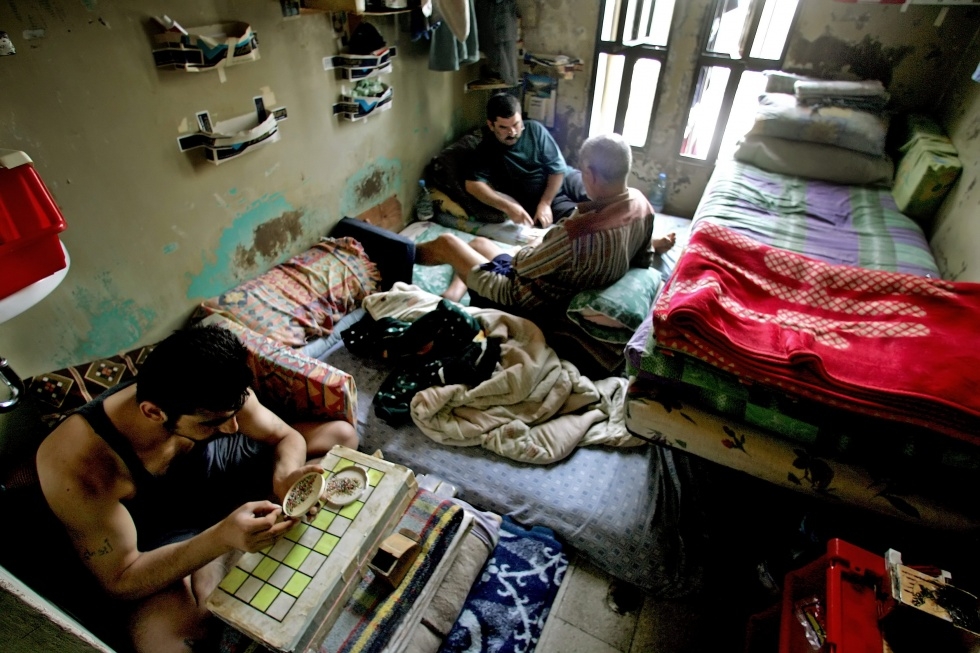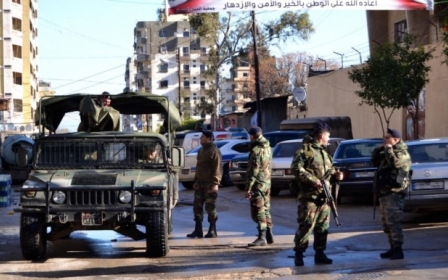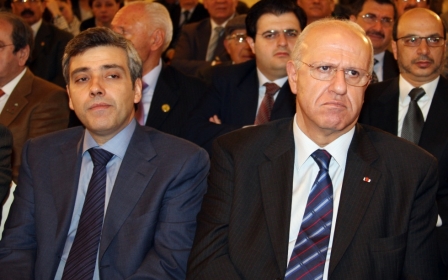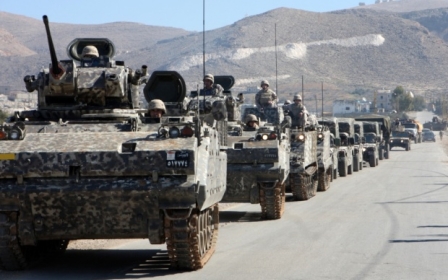Roumieh hostage crisis: A microcosm of Lebanon's broken state

This past winter, the word on the street in Lebanon was that the country was in for an eventful spring.
First there was the prediction of a full-out war with jihadists along Lebanon’s eastern border with Syria - although this appears to have been slightly delayed thanks to climate change, which continues to make a mockery of springtime and thwart ideal battle conditions with cold and snow.
The forecast then grew to include a resumption of political assassinations, with Interior Minister Nohad Machnouk citing ambiguous reports to that effect. To be sure, Lebanon’s perpetually afflicted nature means that any prediction of bad things happening is almost guaranteed validation - hence, perhaps, the success of the domestic clairvoyant industry.
Not foreseen in the spring schedule was the latest hostage crisis, which was a bit out of the ordinary even for a country superbly acquainted with the tradition of hostage-taking.
On 17 April, the news emerged that a number of prison guards were being held by inmates at Lebanon’s Roumieh jail north of Beirut. The figures varied, but most media outlets ultimately reported between 14 and 20 prison security personnel and other staff taken hostage.
The episode began with a riot at Roumieh’s cell block D, which in January received a population transfer from cell block B so that the latter could undergo renovation. In its pre-renovated state, Sunni Islamist inmates had the run of the place - there were laptops and mobile phones galore, and the cell block was essentially off-limits to prison guards.
In addition to internet, amenities also reportedly included a private water filtration system, inmate-operated barber and coffee shops, and access to weapons manufacturing equipment.
Long regarded as a terrorist command and control centre in which technologically equipped prisoners were able to remotely direct jihadist operations in Lebanon and Syria from behind bars, block B apparently went one step too far in January, when its residents were linked to a twin suicide bombing in the north Lebanese city of Tripoli.
Unleashing Lebanon’s Internal Security Forces to forcibly relocate the prisoners to the better-monitored block D, Machnouk promised that the move was temporary and that B would be back up and running in no time, but in thoroughly revamped form.
The new normal
The demands made by the inmate-captors in last week’s hostage crisis included a return to their former stomping grounds in block B and a restoration of cell phone privileges - demands echoed by the inmates’ families, who during recent protests also called for Machnouk’s resignation on account of alleged mistreatment of detainees.
To be sure, the allegation is hardly far-fetched given consistent reports of torture and other unpleasant behaviour on the part of the police force.
Interestingly, Machnouk also came under fire from MP Mohammad Kabbara of the Future Movement, to which the interior minister also belongs. According to Lebanon’s Daily Star newspaper, Kabbara accused his colleague of apparently “reading too many police novels” and subjecting Roumieh prisoners to Guantanamo-esque humiliations.
While one can rarely attribute statements by Lebanese politicians to concern for anything aside from their own perpetual power, the Guantanamo analogy is nonetheless valid given that both institutions specialise in indefinite detention without charge. And despite ostensibly facilitating the pursuit of justice, both venues effectively function outside the law.
Following the release of the hostages after less than 24 hours, Machnouk was variously quoted as asserting that the situation in Roumieh was “back to normal” and that it was “normal” for riots to occur in cases of “inhumane overcrowding” in jails. Apparently, inhumane is the new normal.
Designed for 400 inmates, cell block D is currently hosting an estimated 1,100. Block B is slated for repopulation in May, but will that mitigate the inhumanity of a jail that remains chronically overcrowded no matter how you divvy up the prisoners?
According to Machnouk’s calculations back in January when the block B renovations began, the makeover would produce “a humanitarian facility that offers its inmates all of their needs.” But as I pointed out at the time, this vision conveniently overlooked the fact that the spontaneous humanitarianisation of Roumieh would require a total revolution in government outlook and operating procedures.
For one thing, the idea of social rehabilitation of inmates is anathema to the Lebanese prison system, with the pathologies cultivated therein even proving politically expedient at times.
Many an observer has commented on the tacit and not-so-tacit encouragement of Sunni extremism - including by Future Movement partisans - as a counterweight to domestic and regional opponents.
Meanwhile, the substantial reliance on private sector investments for Lebanese prison upgrades means lots of opportunities to profit from the mass incarceration industry - not exactly the most “humanitarian” phenomenon.
‘Cutting off heads’
Beyond the rumoured humanitarian adjustments, the new-and-improved block B will also supposedly be deprived of its former technological apparatuses.
But when I met up recently in Beirut with Radwan Mortada, a journalist for Lebanon’s Al-Akhbar newspaper and an expert on Roumieh and jihadists, he scoffed at the idea that it would be anything but business as usual in Block B.
The smuggling of cell phones and other items to prison inmates would not suddenly cease, he said; after all, if a prison guard can make hundreds of dollars - even half his monthly salary, perhaps - by tossing a gadget into a cell, what’s stopping him?
The interior minister himself offered one possible answer to this question earlier this year, when the Daily Star reported that he had “vowed to ‘cut off heads’ if mobile phones were allowed to be smuggled into prisons by corrupt guards.” Had Kabbara been feeling feisty in this case, he might have suggested the man had been watching too many ISIS videos.
Obviously, cutting off heads isn’t the best way to instill a new mentality in one’s citizens. Furthermore, if one really wants to eradicate corruption in Lebanon, there are better places to start than at the lower rungs of society. To get the ball rolling, the ruling class might consider a simultaneous auto-decapitation.
But no top-down remodeling is scheduled for the near future, and Lebanon will continue to exist as a masterpiece of dysfunction: a melee of sectarian elites who plunder the country’s riches and regularly leave the people without typical amenities of life like electricity and water.
In the absence of any attempt to forge a cohesive state that at least pretends to have the interests of its human population at heart, it’s perhaps not surprising that a variety of antisocial behaviours might flourish—including the kind that could land you in a cell block in Roumieh.
Of course, no matter which side of the bars you’re on in Lebanon, you’re a hostage to corrupt sectarianism and inhumanity.
- Belen Fernandez is the author of The Imperial Messenger: Thomas Friedman at Work, published by Verso. She is a contributing editor at Jacobin magazine.
The views expressed in this article belong to the author and do not necessarily reflect the editorial policy of Middle East Eye.
Photo: Lebanese prisoners sit inside a cell at Roumieh)prison, northeast of Beirut, 7 April 2006. The detention centre, one of the biggest in the Middle East, holds 4,500 inmates but has a capacity of only 1,500. (AFP)
Stay informed with MEE's newsletters
Sign up to get the latest alerts, insights and analysis, starting with Turkey Unpacked
Middle East Eye delivers independent and unrivalled coverage and analysis of the Middle East, North Africa and beyond. To learn more about republishing this content and the associated fees, please fill out this form. More about MEE can be found here.





